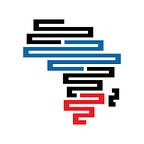#RosesNotBullets: Holding Police Accountable
Using data and civic technology to combat extrajudicial killings
Police killings are always an emotive flashpoint but, in the absence of official statistics, public debate is seldom based on credible data. Kenya’s Missing Voices initiative seeks to change that, by collating verified data on an easy-to-use platform for civic watchdogs.
The initiative’s 2019 annual report, launched by a coalition of human rights watchdogs in Nairobi on Valentine’s Day as part of the #RosesNotBullets campaign indicates that Kenyan police killed at least 107 Kenyans in 2019.
Most of the victims were young men living in informal settlements. The numbers also confirm that 69% of those killed were between 18 to 35 years, with a disturbing further 20% of victims under the age of 18. Overall that means that 90% of those killed in 2019 are classified as youths, confirming concerns by civil society that police action in the country is effectively “criminalising young people”.
“Most of those killed were from poor backgrounds, where it seems the law does not apply,” the coalition said in a statement at the launch. “Despite positive efforts to reform the police, [including] the Inspector General commanding that all officers should wear uniforms while on duty, [and ordering the] disbanding of Spiv and Flying Squad that have in the past been accused of killings, we saw a spike in police killings in January this year with about 14 Kenyans being killed.”
The analysis relied on frontline research and evidence collection by grassroots human rights defenders. But, investigating police conduct exposed many of the activists to intimidation and harassment by the authorities. Code for Africa’s (CfA) local civic technology lab played a key role in tackling these threats, offering secure encrypted tools for whistleblowers and eyewitnesses to share evidence with investigators through afriLEAKS.org. With the help of Jigsaw, CfA also rolled out free instances of OutlineVPN to protect investigators and activists against digital snooping or surveillance.
CfA further helped the initiative’s partners use data collection and analysis tools, and trained many of the activists to turn evidence into data, while also helping offset the costs for running the public website by sponsoring the hosting costs.
“CfA’s core mission focuses on giving citizens actionable data, along with digital tools to amplify their voices and to protect their right to participate in civic processes. Missing Voices is therefore a powerful way for us to help human rights defenders in Kenya to do their work in a more secure way,” says CfA’s executive committee member in Kenya, Catherine Gicheru.
But, data alone doesn’t change public discourse. CfA is therefore offering ongoing support to women data journalists at leading newsrooms to investigate police and other extrajudicial killings or disappearances in Kenya through its WanaData initiative.
The #RosesNotBullets campaign spotlights cases where relatives are still waiting for action against the policemen involved in shootings, including cases such as where a baby was killed during a police raid on a Chang’aa (illicit liquor) den in September 2019. But, it isn’t just the police who come in for criticism: activists ask why court trials into killings, such as that of Meru University student leader Evans Njoroge, are still dragging on for up to two years after charges were laid.
“[Relatives] are still crying for justice, many years after their loved ones were killed,” the initiative says. “As the world celebrates Valentine’s Day, [we are] spreading #RosesNotBullets in remembrance of victims … and are urging Kenyans to speak up because their silence kills.”
The campaign is demanding:
- The implementation of the National Coroner’s Act and the Prevention of Torture Act;
- Establishment of a National Commission of Inquiry into violations by security agents;
- Reparations for victims of extrajudicial killings and enforced disappearances and their families;
- A public pronouncement by Inspector General of Police and Interior CS condemning police excesses.
The initiative is led by the Police Reform Working Group in partnership with the International Justice Mission and the Independent Medical-Legal Unit, with support from CfA and fellow civic technologists OdipoDev, as well as more traditional CSOs such as Amnesty International, Protection International, and Kenya Human Rights Commission. See the full coalition here: https://missingvoices.or.ke/about-us/
Visit the project here: https://missingvoices.or.ke/
See the data analysis here: https://missingvoices.or.ke/facts-and-figures/
Code for Africa (CfA) is the continent’s largest federation of indigenous civic technology and open data laboratories with CfA labs in Kenya, Nigeria, South Africa, Tanzania and Uganda and a further five affiliate labs in Cameroon, Ethiopia, Ghana, Morocco and Sierra Leone and funded projects in a further 12 countries. CfA manages the $1m/year innovateAFRICA.fund and $500,000/year impactAFRICA.fund, as well as key digital democracy resources such as the openAFRICA.net data portal and the GotToVote.cc election toolkit. CfA primarily supports grassroots citizen organisations and the media to help liberate data and empower citizens, but also works with progressive government agencies to improve digital service delivery.
In addition to funding and technology support, CfA’s labs incubate a series of trendsetting initiatives including the PesaCheck fact-checking initiative in East Africa, the continental africanDRONE network, and the African Network of Centres for Investigative Reporting (ANCIR) that spearheaded Panama Papers probes across the continent.
